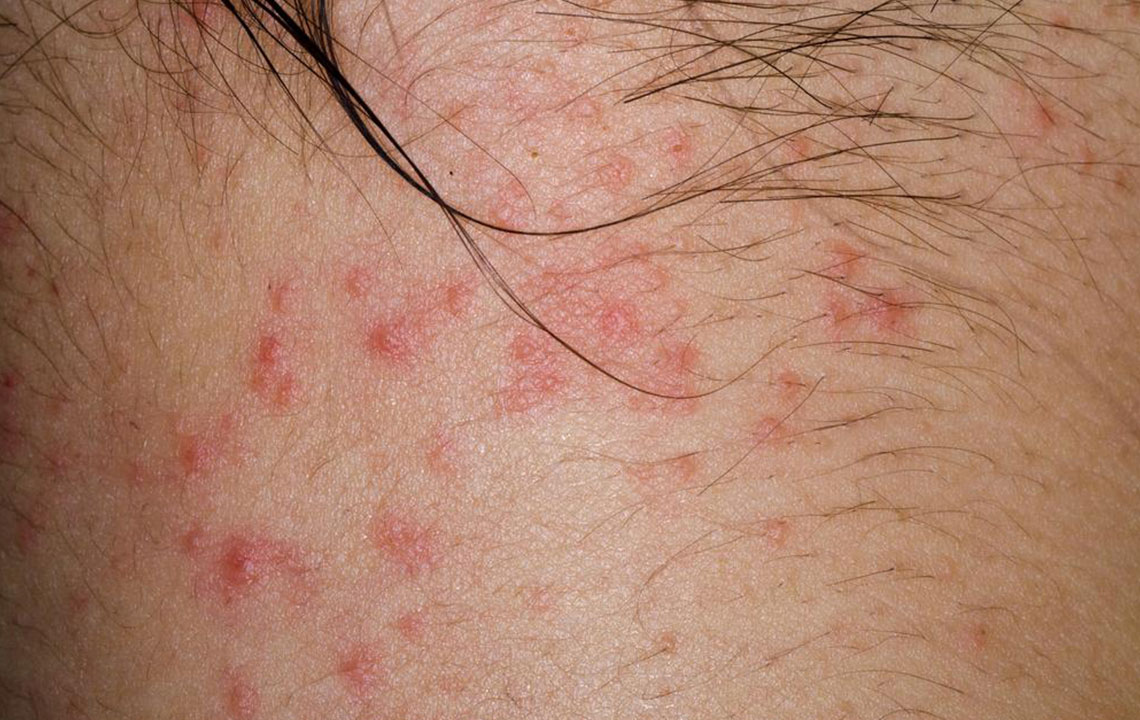Types of Eczematous Dermatitis and Their Symptoms
Eczematous dermatitis or eczema is a skin condition that is characterized by itching, red and inflammation. It is a common condition and in fact, has spread to greater than 30 million people in the country. It is not contagious therefore it does not spread from one person to other. The exact cause of eczematous dermatitis is not known. But, it is believed that those who develop eczema due to genes and environment.

It is feasible that a person can develop more than one type of eczematous dermatitis at a single point in time. The skin condition can result in redness and itching in the sufferer. It may also cause weeping. The most common type of dermatitis is atopic dermatitis (AD).
It is important to know which types of skin problem you suffer from before you seek treatment. Understanding of condition also aids the problem.
Types of eczematous dermatitis
Atopic dermatitis
It is characterized by scratch marks on the backside of knees. It is chronic as well as inflammatory. The cause of the type of skin condition is unknown so far. However, it happens when the immune system goes weak. It normally develops in childhood. It is possible to suffer from the condition in first six months after birth. If you witness signs of an AD in your child, take precautions. However, it goes away itself with time. The AD also includes two ore allergic conditions known as allergic rhinitis. Researchers believe that people with family history of the AD, hay fever or asthma are likely to develop AD in future.
Symptoms of AD
- Dry skin
- Scaly skin
- Itching
- Redness
- Cracks in skin
- Rash on arm, cheeks, and legs
- Weepy sores
Contact dermatitis
This skin condition is caused by metal watch dial. These are the skin problems that develop from wrist area. It develops after skin comes in contact with an irritating substance. This substance makes skin appear inflamed. It causes the skin to go red and cause itching and inflammation. Two kinds of contact dermatitis are allergic and irritant. It usually appears in hands and parts of the body that accidentally touch allergen. Common allergen or irritants that cause contact dermatitis are listed below.
- Solvent
- Detergent
- Industrial chemicals
- Tobacco smoke
- Fumes
- Bleach
- Paints
- Wool
- Astringents
- Acidic foods
- Skin care products containing alcohol
- Soaps and fragrances
- Allergens
Symptoms of contact dermatitis
- Rash
- Redness
- Swelling
- Burning
- Blisters
Dyshidrotic eczema
It develops on soles of our feet. It is a condition characterized by itchy, small blisters on the edges of fingers, palms, soles, and toes of feet. There is stress, wet hands, allergies, nickel exposure, cobalt or chromium salts that cause this condition.
Symptoms of dyshidrotic eczema
- Redness
- Itching
- Flaking
- Cracked skin
- Scaly skin
- Pain
Hand eczema
It can be called one of the most common conditions. It results from exposing skin to irritating substance or chemicals. It is also known as hand dermatitis. It is found in 10% of the population. It can be a result of both internal as well external factors. It can be caused by genetics and contact with allergens substances such as chemicals.
Symptoms of hand eczema
- Itching
- Pain
- Redness
- Dryness
- Skin cracks
- Blisters
Neurodermatitis or lichen simplex chronicus
It is characterized by the development of skin patches. It is an itchy skin disease that appears as atopic dermatitis. Those who suffer from lichen simplex chronicus receive scaly, itchy patches on their skin. These patches are a result of excessive rubbing and scratching of the area.
Symptoms of lichen simplex chronicus
- Thick patches
- Scaly patches
- Patches on neck, shoulders, and scalp.
- Itching
- Discolored skin
Nummular eczema
The condition is different from any other type of eczema. It is coin-shaped lesions. Nummular eczema is also called discoid eczema and nummular dermatitis. It is a common type of eczema that can form at any age. It is difficult to treat the condition. People suffering from nummular eczema have coin-shaped spots on the skin that are itchy. It is caused by insect bites, inflammation, and dry skin.
Symptoms of nummular eczema
- Coin-shaped spots
- Round spots
- Dry skin
- Scaly skin
- Itching
- Wet skin
- Open sores
Seborrheic dermatitis
It is considered as chronic eczematous dermatitis. It appears on the body part where presence oil-producing glands are more. Normally, the body part with seborrheic dermatitis is nose, scalp and upper back. If it is on the scalp, it is called dandruff. However, the exact cause of seborrheic is not understood. Genes and hormone play an important role to trigger the condition. Microorganisms such as yeast that grows on natural skin contribute to seborrheic dermatitis. Unlike other diseases, seborrheic dermatitis does not develop due to allergy. People of any age can develop seborrheic dermatitis.
Symptoms of seborrheic dermatitis
- Dandruff
- Itchy skin
- Cradle cap (in babies)